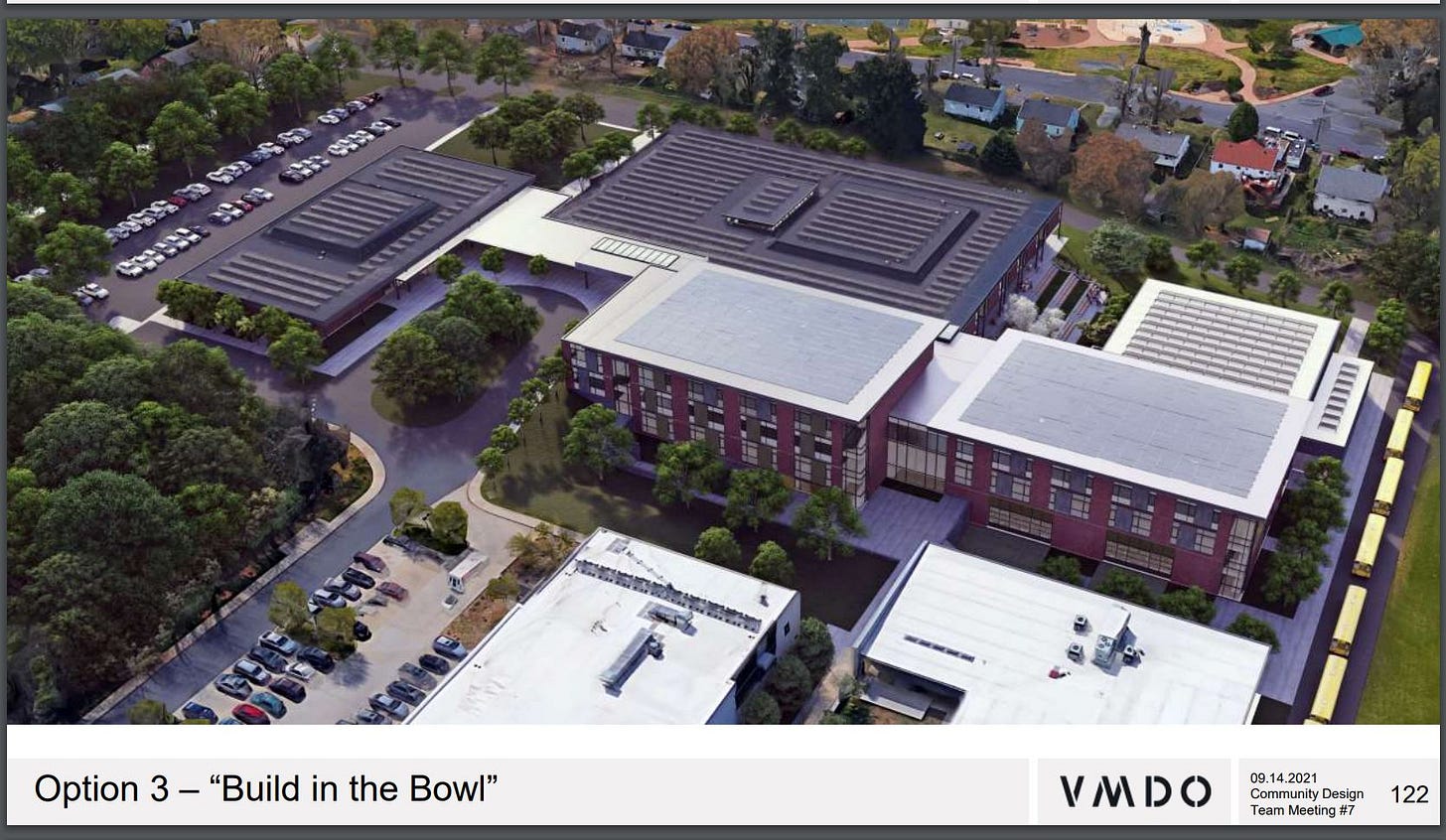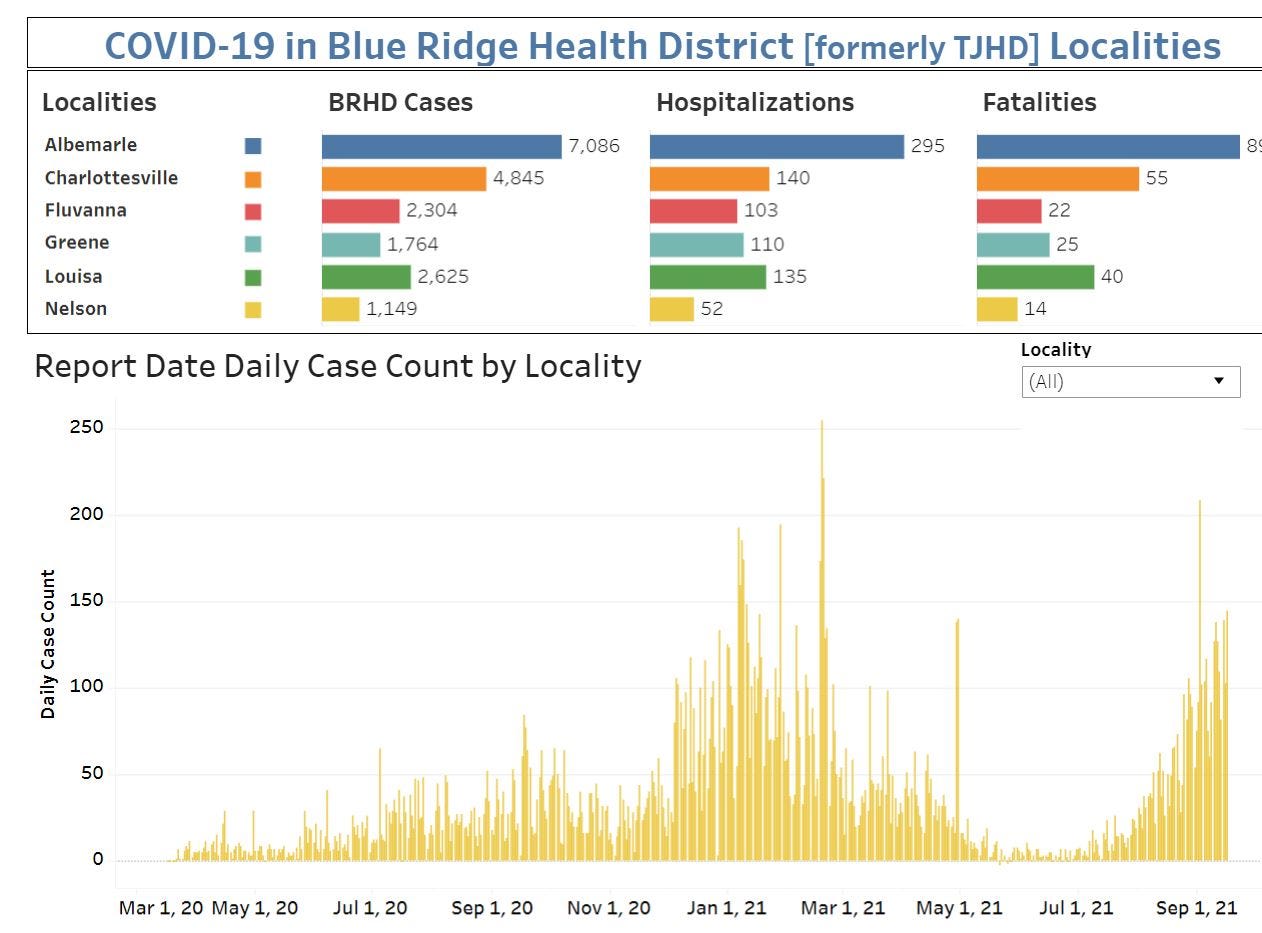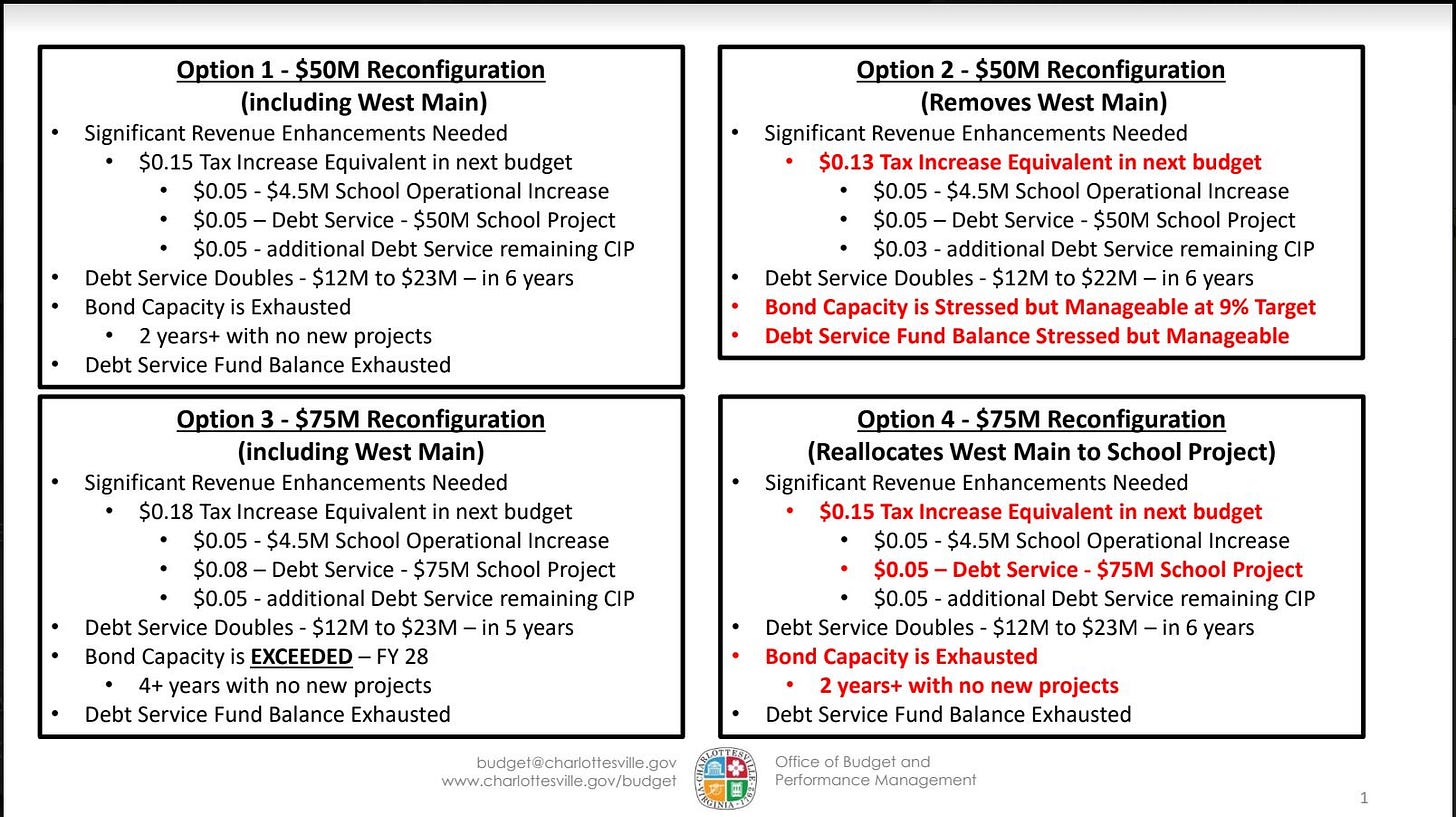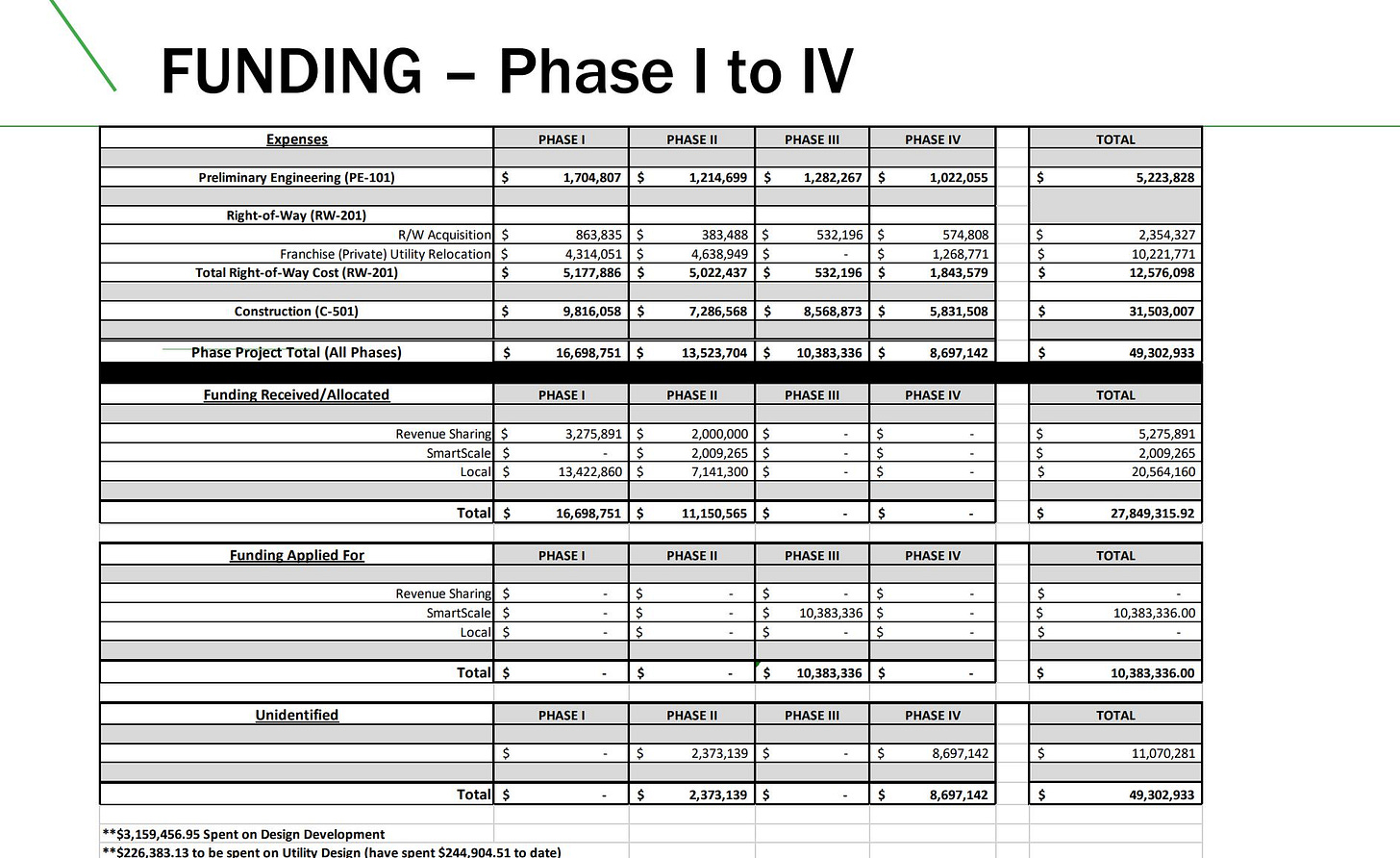The first of two Patreon-fueled shout-outs!
WTJU 91.1 FM is a different sort of radio station. It's dedicated to sharing the transcendent experience of music while raising funds from listeners across the world. From October 4th through 10th, WTJU airs its annual Jazz Marathon. Tune in for a deep dive into everything from bebop to blues. WTJU's Volunteer DJs will play the spectrum jazz – from Billie Holiday to Canonball Adderly to Pharoah Sanders. Plus live, local jazz performances throughout the week.
Visit wtju.org to learn more.
On today’s show:
Charlottesville City Council discusses the costs of reconfiguring Buford Middle School and make a decision on West Main Street
Early voting in Virginia begins tomorrow, and a look at voting as it stands in Albemarle and Charlottesville in 2021
Rio Hill Shopping Center has asked Charlottesville Area Transit to stop stopping there
And a new job for Charlottesville most recent planning director
Another day, another large number of new COVID cases. That number is 4,181 and the percent positivity is 10.6. There are another 145 new cases in the Blue Ridge Health District and one more fatality reported. That person lived in Greene County.
The COVID-19 model created by the University of Virginia Biocomplexity Institute currently projects that the Charlottesville area will reach a peak of 2,245 new cases a week in mid-October.
“Models can help us understand the potential course of COVID-19, but they are not crystal balls,” reads a statement on the website for the model. “Most models struggle to project policy changes, changes in human behavior, or new and rare events.”
With the pandemic raging, many indoor venues are now requiring proof of vaccination before admittance. To make showing that proof more convenient, the Virginia Department of Health announced today they are offering QR codes.
“As more and more employers and businesses respond to calls by President Biden and Governor Northam to require that employees and customers be vaccinated,” reads a press release. “QR codes will help improve the consistency and security of vaccination information while protecting individual privacy.”
Visit vaccinate.virginia.gov to obtain a QR code. Virginia is the fifth state to adopt protocols developed for SMART Health Cards.
*
Early voting in Virginia begins tomorrow as acting Charlottesville Registrar Taylor Yowell explains.
“Under Virginia election law, voters can vote up to 45 days early in-person or absentee,” Yowell said. “So with that 45 days in advance of an election, that is 33 actual days that you can come into our office and vote.”
Yowell made her comments this past week at a Sunday seminar held by the League of Women Voters of the Charlottesville Area. Yowell said mail-in ballots will be distributed beginning this week. (listen to the whole event)
“In order to receive a mail ballot, you must fill out a mail ballot application and that can be submitted online, in-person to our office, mailed in to us,” Yowell said. “We do have a lot of voters and say ‘hey, I don’t have availability to get online and fill one out’ so we will send them the application with a return envelope so they can be added to the list.”
Once registrars across Virginia receive ballots, there is a process known as curing that validates the vote. According to the instructions on voting absentee in Virginia, there’s an A envelope, and a B envelope.
“Whether this is by mail, whether you drop to our dropbox, whether you drop into our office, we take it inside and it will be automatically opened up and we check to make sure every component on your B envelope… this is where your name, your address, your signature, your witness signature, the day you filled out the ballot… this is where we make sure everything is correct. And we have three days after we receive a ballot to notify you if there’s something that needs to be cured, so that way your ballot can be accepted and processed in our office,” Yowell said.
In 2020, the state of emergency related to the pandemic temporarily waived the requirement for a witness signature. That will be required again this year. Yowell said voting early in-person is just like voting on Election Day.
“No results are pulled until 7 p.m. on Election Day, just like at the precincts, because no one will know and no one can prior to 7 p.m.,” Yowell said.
Now, what if someone requested a ballot via mail, and then shows up in person anyway? Yowell said in that case, the person is asked to sign an oath.
“It’s just a gold piece of paper saying ‘I have lost or not received my ballot’ and it’s pretty much an affirmation signing that you will not attempt to vote twice,” Yowell said. “If you do, it will be turned over to the Commonwealth’s Attorney.”
The last day for in-person voting before Election Day will be October 30.

Charlottesville Area Transit Route 5 will no longer serve the Rio Hill Shopping center, according to a release from the bus agency. The release states the property owner has requested the change, and that means two stops within the shopping center will become dormant. The 31 acre property is owned by SCT Rio Hill LLC, a firm associated with the retirement system for employees of the state of Connecticut.
The manager of the Rio Hill Shopping Center said in June 7 letter to the city that planned renovation implements a vision that does not involve public transit.
“Not only are the buses a safety hazard for the customers crossing the main drive lanes to get to the stores, but the weight of the buses is also causing significant damage to the asphalt resulting in wear and cracking,” wrote Jim Paulus, the center’s manager.
The planned route changes that have not yet been fully approved had already taken the request into account. In addition, Route 5 will no longer terminate at the Wal-Mart but instead will stop at Fashion Square Mall. Route 7 will instead travel to Wal-Mart and the plans show the alignment as missing Rio Hill Shopping Center. There is no date for when the transit changes will be made. H
The Regional Transit Partnership meets next Thursday.
Previous coverage:
Now that Charlottesville has a new director of Neighborhood Development Services, the person who last held the position now has a city post in a newly created city department. Alex Ikefuna is the interim director of the Office of Community Solutions.
“The Office of Community Solutions will reside in CitySpace and the team will concentrate on our housing priorities, commercial redevelopment interests, federal entitlements/investments coordination and management, and neighborhood constituent services,” said city communications director Brian Wheeler in an email.
Ikefuna will oversee the Office of Housing, which will report to Deputy City Manager Sam Sanders.
“The vision for this office is to expand and deepen the City’s approach to a variety of community-based efforts, especially related to addressing our affordable housing crisis,” Wheeler continued.
In today’s second Substack-supported public service announcement: The Charlottesville Jazz Society at cvillejazz.org is dedicated to the promotion, preservation, and perpetuation of all that jazz, and there’s no time like now to find a time to get out and watch people love to play. The Charlottesville Jazz Society keeps a running list of what’s coming up at cvillejazz.org.
Last night, the Charlottesville City Council got the latest details on the plans for reconfiguration of the city’s middle schools. Go back and read/listen to the September 14, 2021 edition of the show for the details.
Since that was posted, a Community Design Team that has been shepherding the work of architectural firm VMDO has made their final recommendation. Here’s Wyck Knox of VMDO with the latest information. (presentation from September 14, 2021 CDT meeting)
“The unanimous choice by the CDT was Option 3 that builds in the bowl and gives a new look to the school and the most square footage and the most variety of outdoor spaces to the new building,” Knox said.

This is also the most expensive option at an estimate of $73 million.
The five-year capital improvement program budget has a $50 million placeholder for reconfiguration. If Council agrees to proceed with the project, they’ll need to approve a budget with actual numbers in order to calculate how many millions of dollars in bonds need to be sold to pay for the capital costs. (FY22 adopted CIP)
For the Council meeting, the city’s budget office presented funding scenarios all of which include an increase in the property tax rate to cover the cost of the additional debt service to pay the bond proceeds back. These hinge on whether the city proceeds with a long-planned and multi-phased project to upgrade West Main Street that grew out of a $350,000 planning study requested in 2012 by the PLACE Design Task Force.
While the currently adopted CIP does not include any additional funding for the $49 million project, Council has previously allocated $20.54 million in local money to match state funding for the first two phases. That’s according to a slide presented to Council back in February. Council could opt to transfer that to the school project.
The tax increases were initially to have been phased in gradually at two cents a year to cover the five-year plan as adopted by Council in April. For the purposes of these scenarios, the tax increases are shown happening next year all at once, and include an additional five cents to cover the additional cost to finance the reconfigured schools.
“If you want to start construction in FY23, which is next year, then we have to have the money to sign a contract, so that means all the money all at once,” said Krissy Hamill, the city’s budget performance analyst.
Option 1 would cover just the cost of that $50 million placeholder and would include the West Main project. This would result in a 15 cent tax increase next year to a rate of $1.10 per $100 of assessed value.
“Option 2 would decrease the amount of tax increase that would be required if West Main Street were removed,” said City Manager Chip Boyles.
That would be a 13 cent tax rate to $1.08 per $100 of assessed value.
The next two options raise the reconfiguration cost to $75 million. Option 3 keeps West Main Street with a 18 cent tax rate increase. Option 4 drops West Main and is also a 15 cent tax increase.
Those actual rates could be different depending on the results of the 2022 assessment. That’s why you see the phrase “tax rate equivalent” in the options.
There will be no room for any additional capital projects for at least two years under these scenarios.
“There are a lot of variables in this,” said Boyles. “This is making the assumption that there is no sales referendum and no sales tax increase.”
Boyles estimates the one percent increase in the tax would bring in an additional $12 million a year.
The current sales tax is 5.3 percent, but Charlottesville only gets one percent of that amount. The budget for the current fiscal year anticipates the city will collect $12 million a year. In Fiscal Year 2020, the city collected $11.4 million according to data compiled by the Auditor of Public Accounts for the Commonwealth of Virginia. That’s up from $9.3 million in 2010.
The capital budget for FY22 includes $1 million for a parking structure at Market Street and East High. Earlier this year, Council opted to wait a year on that project and wait until next year to spend the remaining $7 million. So far, the options presented to Council did not factor in what happens if the project is dropped but that project cannot get totally zeroed out. (FY22 adopted CIP)
“What we have been looking at is reserving at least a couple of million if we had to create surface parking on the properties that we own,” Boyles said. “I would say definitely $5 million could be transferred if needed.”
However, Hammill said that would not affect the projected tax rates because the capital budget already assumes bonds will be sold to cover the cost of paying projects.
The housing plan adopted by City Council calls for $10 million a year to be dedicated to affordable projects.
The current five-year capital improvement program anticipates $13.5 million on public housing, $925,000 a year on the city’s affordable housing plan, $900,000 a year for housing vouchers, and $11.4 million in city funds for the redevelopment of Friendship Court. (FY22 adopted CIP)
There was no specific decision point on the agenda last night but Knox said he wanted to know what Council is thinking. There will be an information item presented to Council on October 4.
A decision on West Main?
Mayor Nikuyah Walker wanted to know where Councilors stood on the West Main Street project. The results were pretty clear.
“The only way I can see West Main Street surviving is if we get this one [percent] sales tax for the school reconfiguration,” said vice mayor Sena Magill. “That’s it.”
“I would definitely fully support reallocating the West Main project to schools,” said Councilor Michael Payne. “I can see West Main continuing as just as Hail Mary of if Congress passes the stimulus bill and there’s no local city money required.”
“I would prioritize this ahead of West Main,” said City Councilor Heather Hill. “Projects like West Main had a lot of revenue come in from other sources and I’ve said before that it’s a hard one to swallow but I think we’re at a point where there’s not another option.”
“As probably maybe the last defender of the West Main project, I also agree that whatever option we end up taking is going to have to be an option that does not include the West Main project,” said City Councilor Lloyd Snook.
Much of the Virginia Department of Transportation funding for West Main Street comes in the form of Smart Scale, which requires projects to be completed within six years. In the current round, the city was awarded $10.4 million for the third phase. None of that funding requires a local match. The University of Virginia committed $5 million to the West Main project as well.


















Share this post